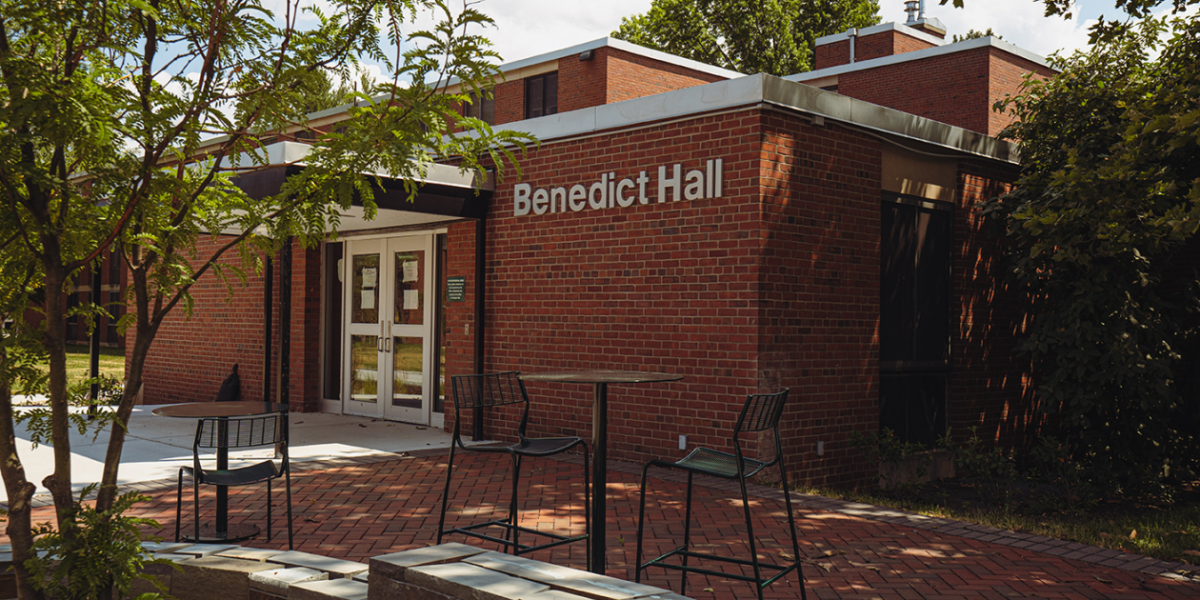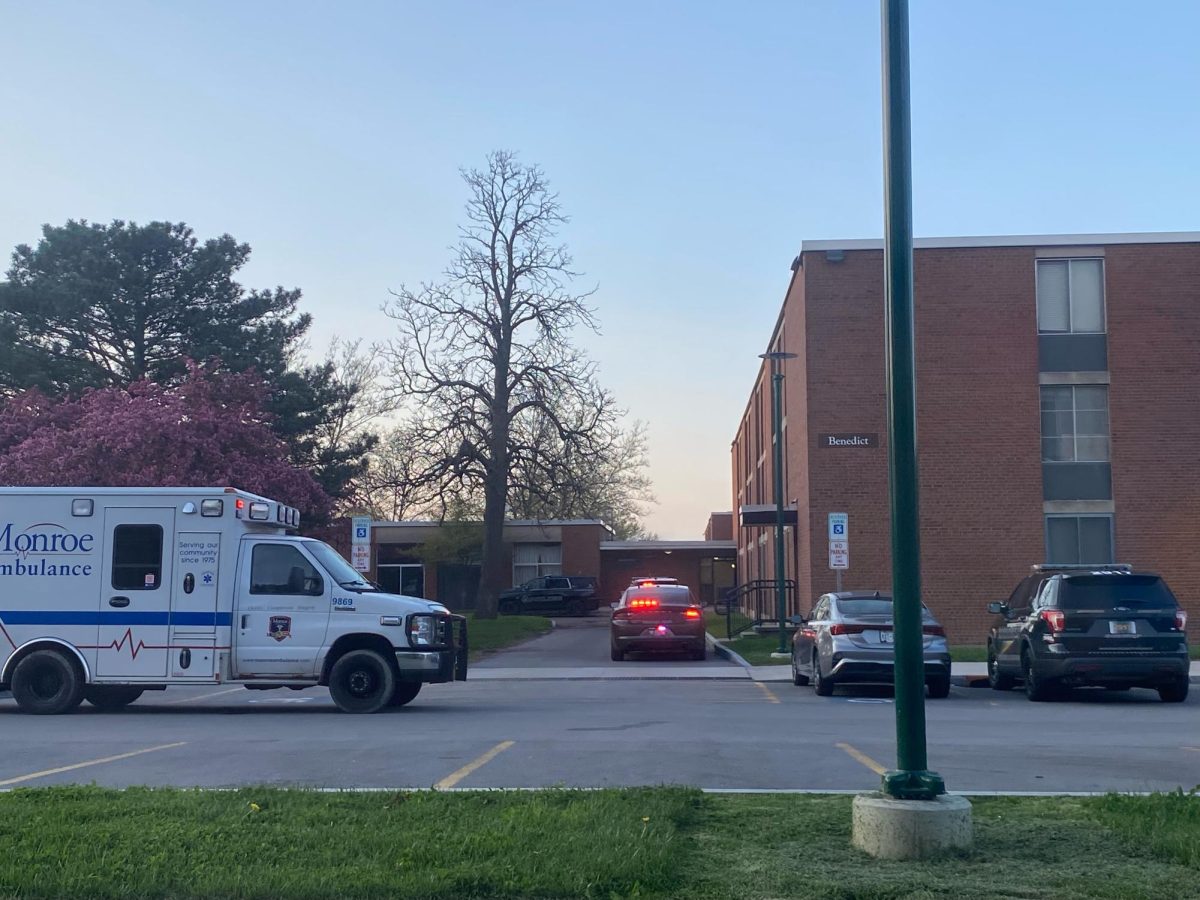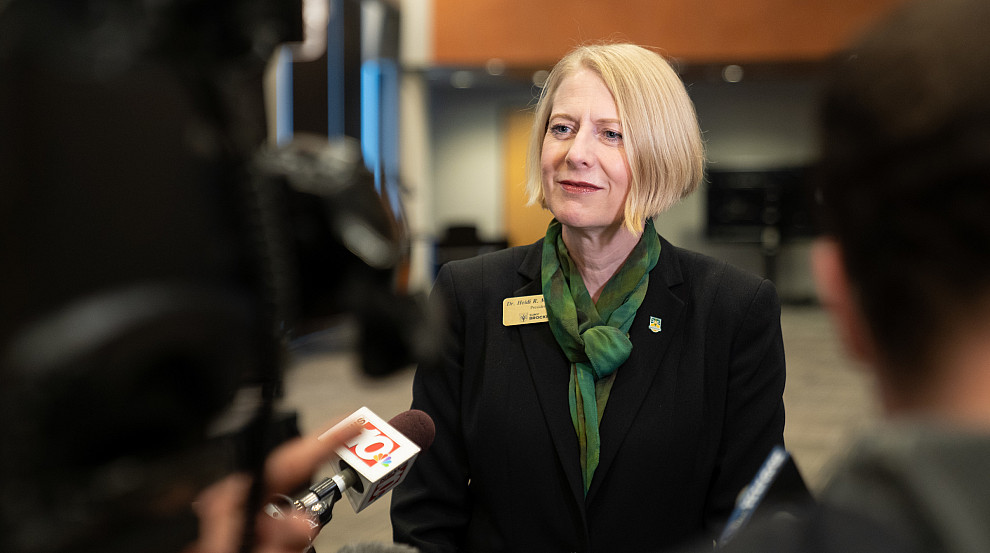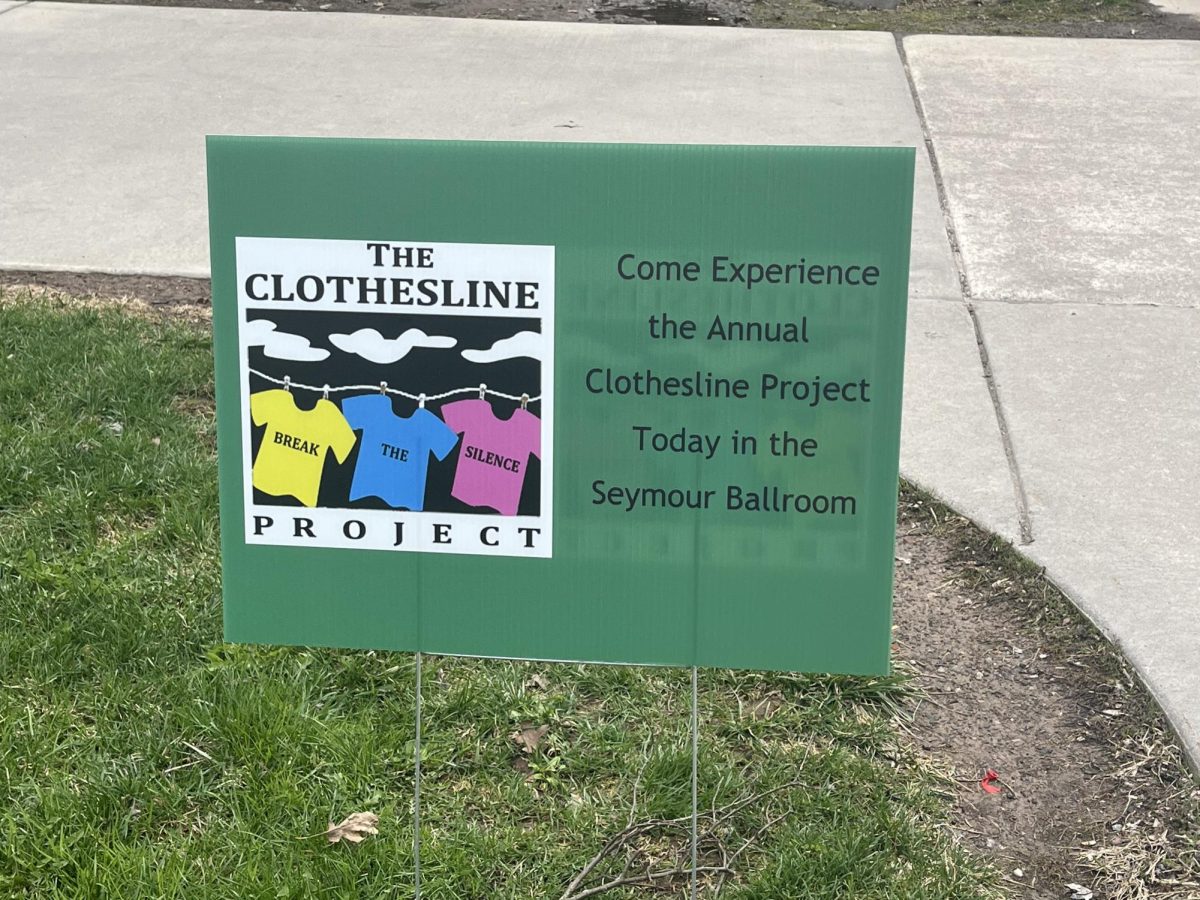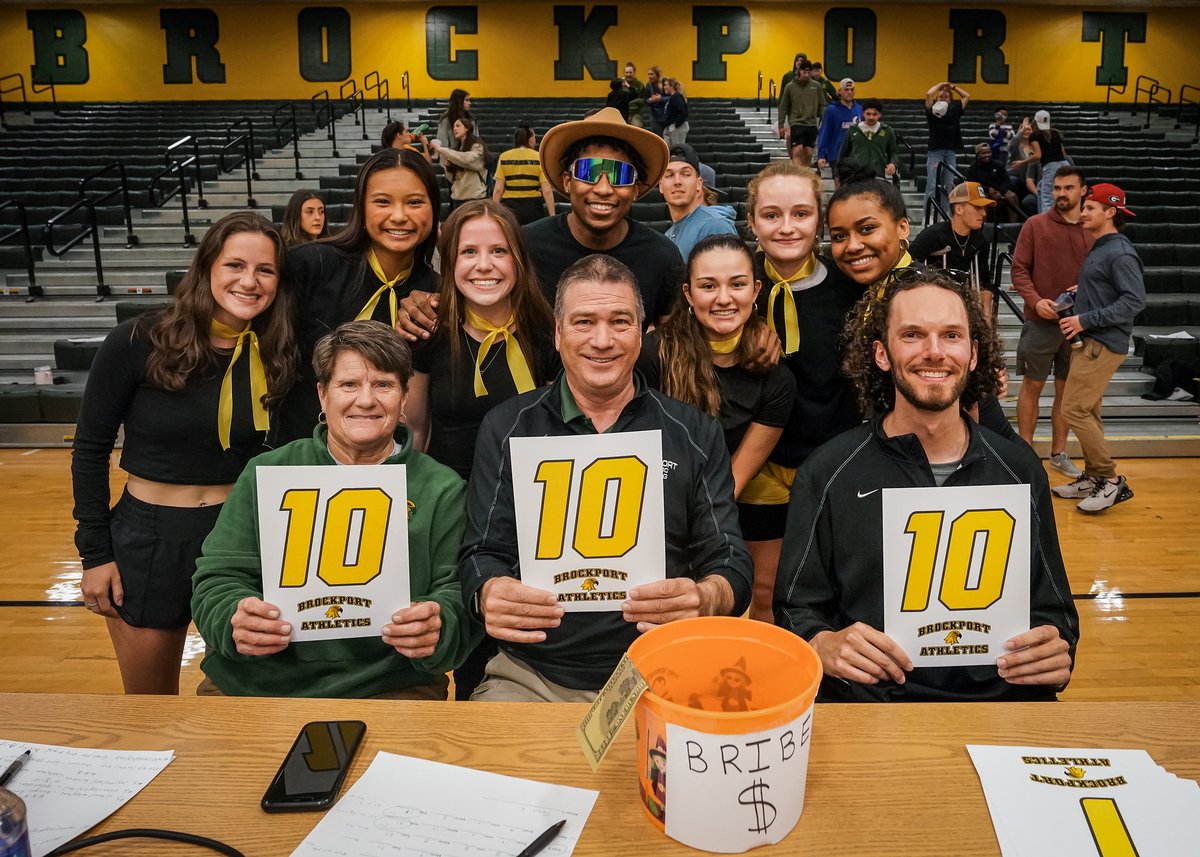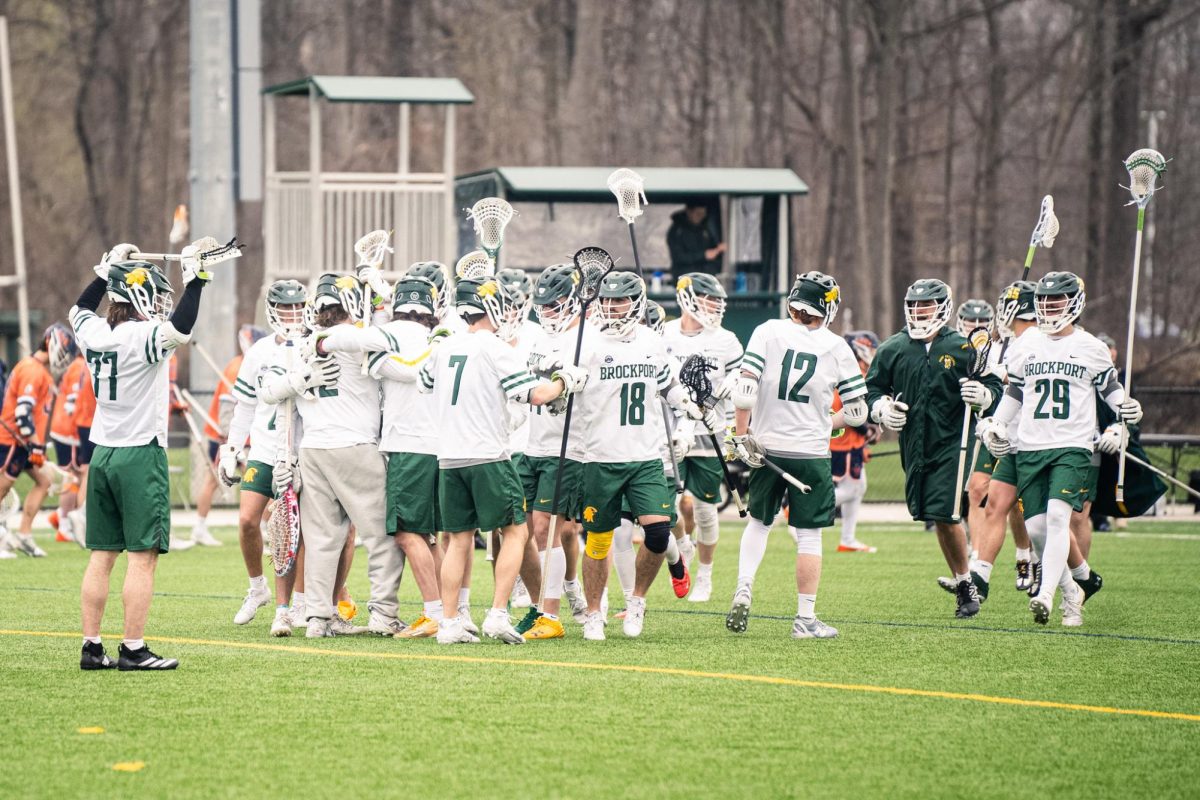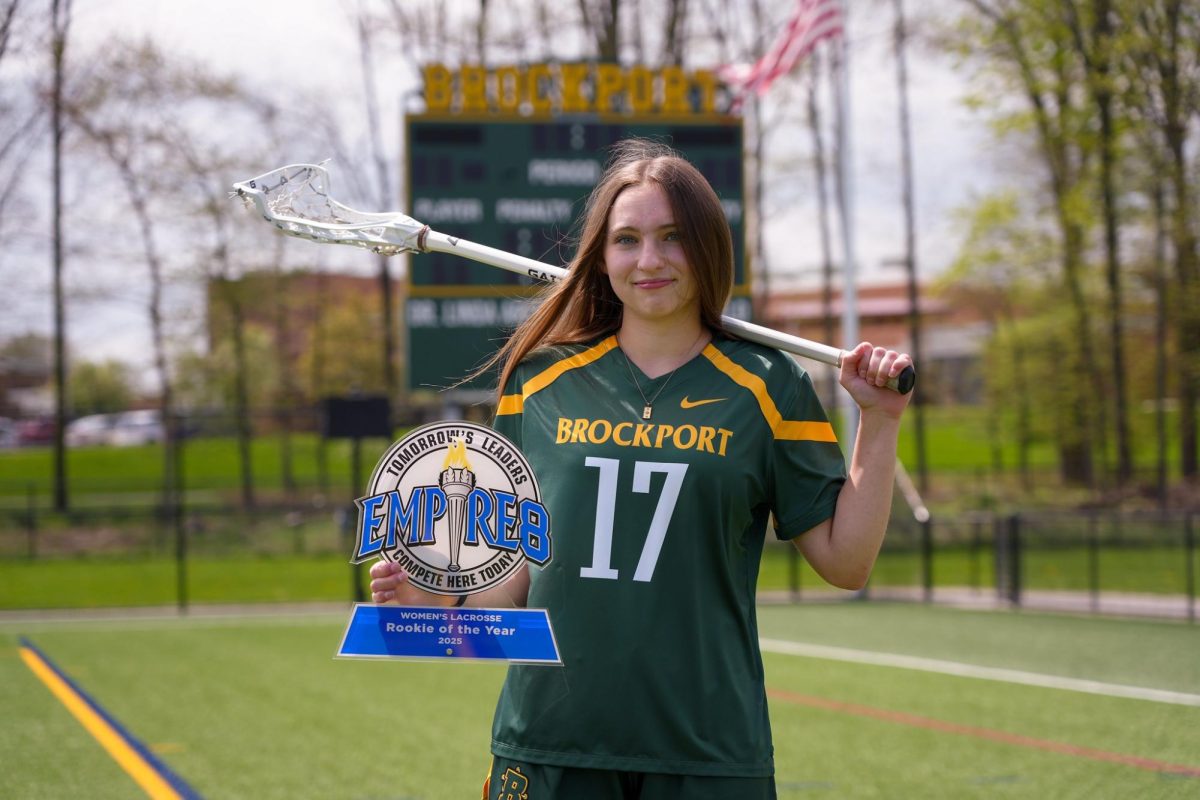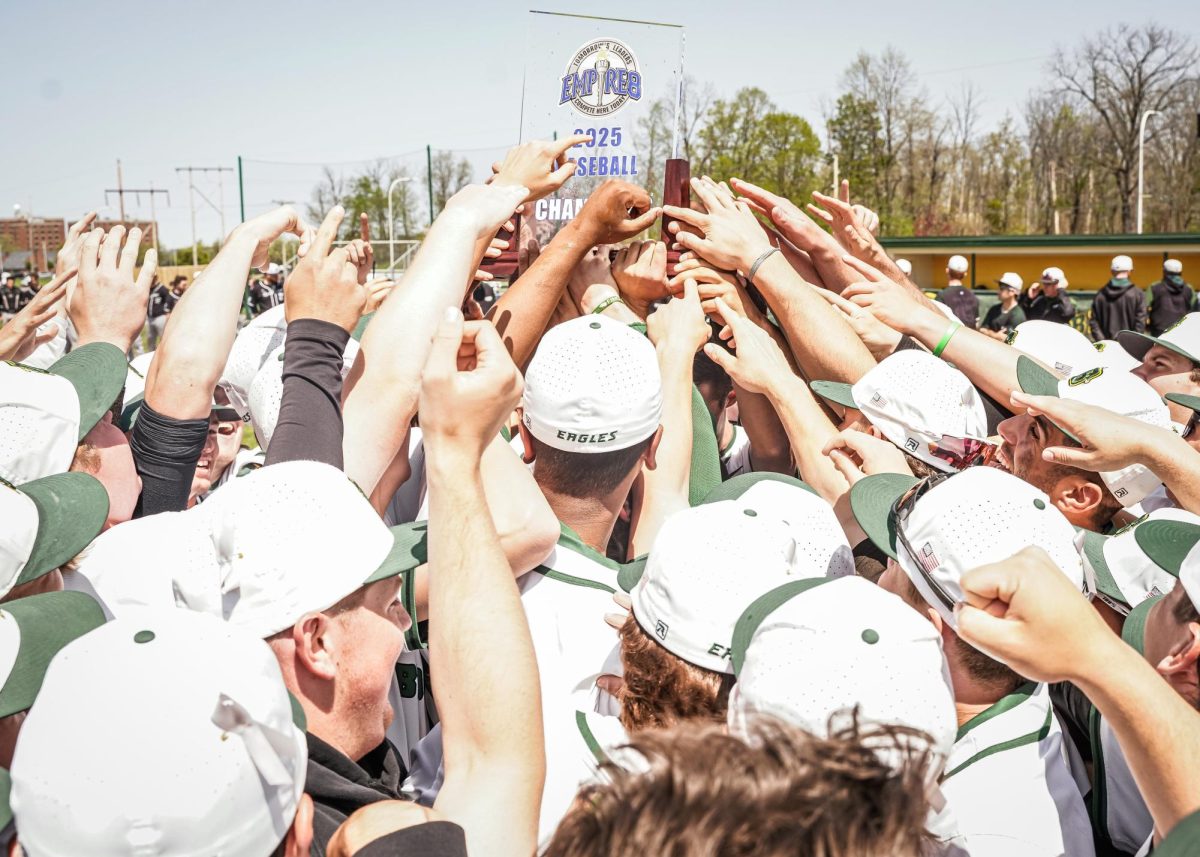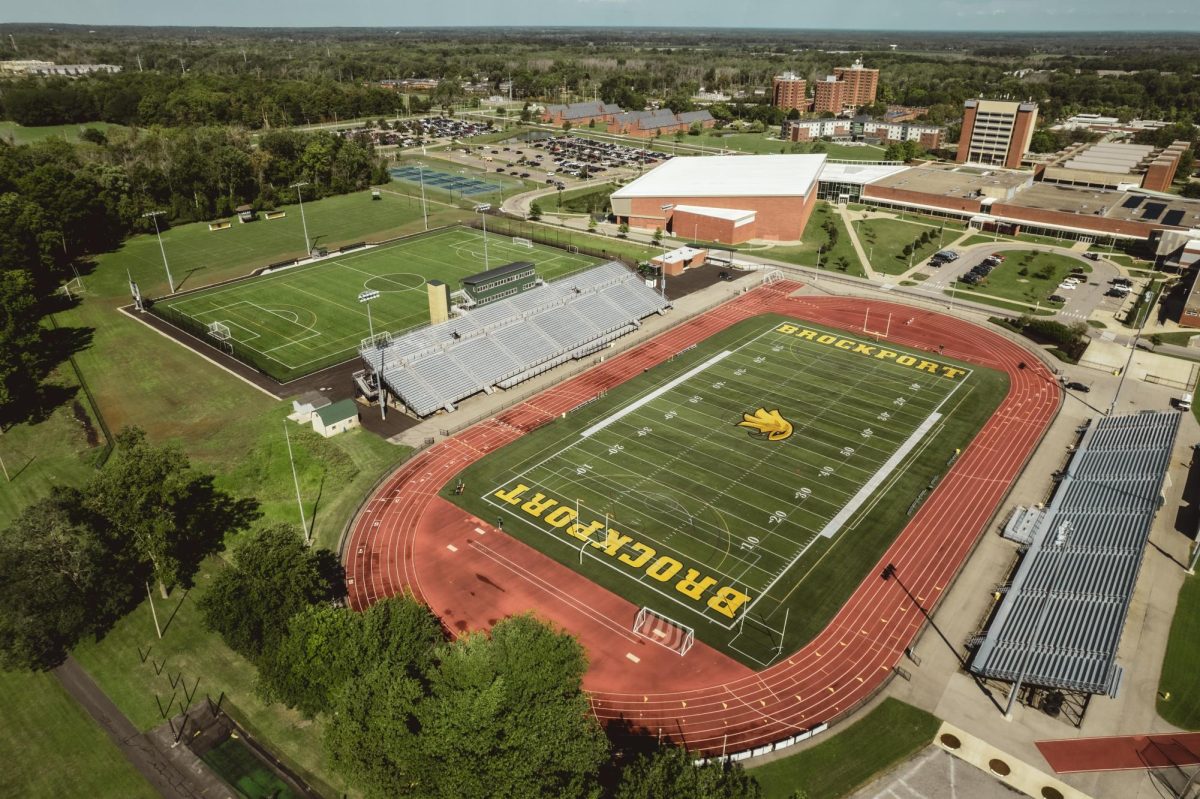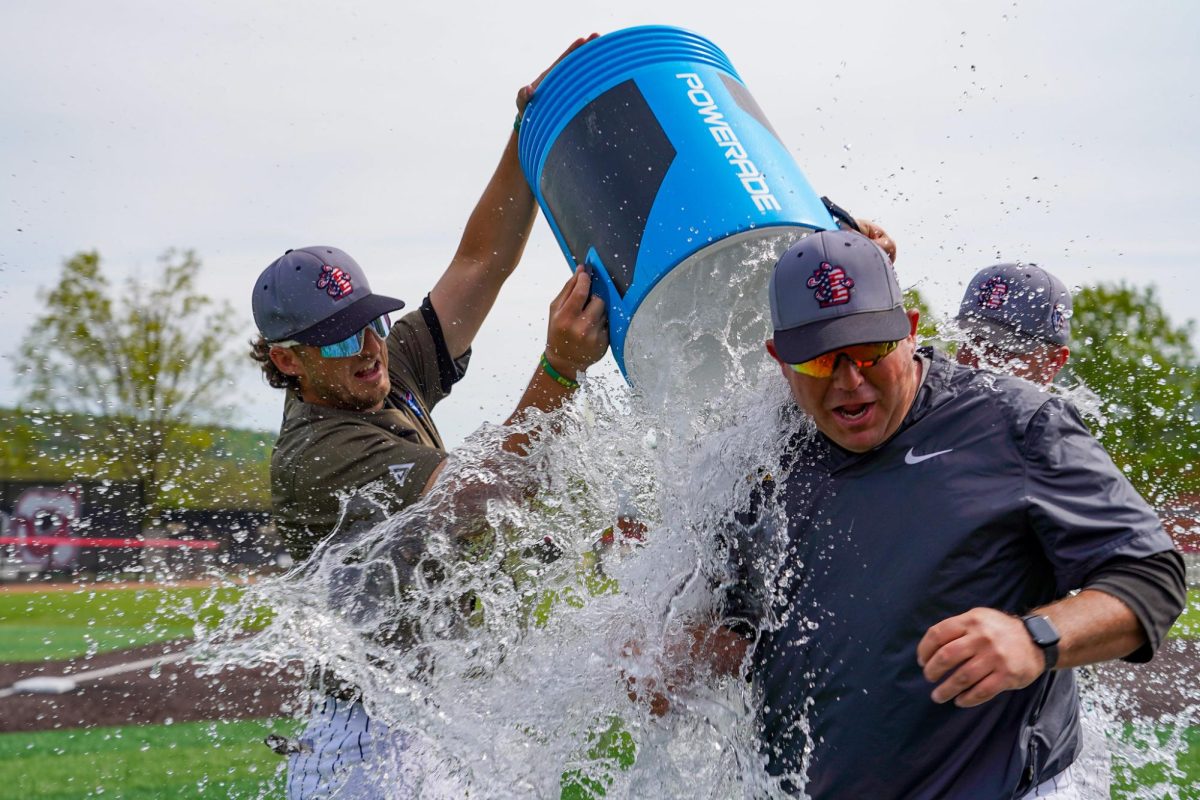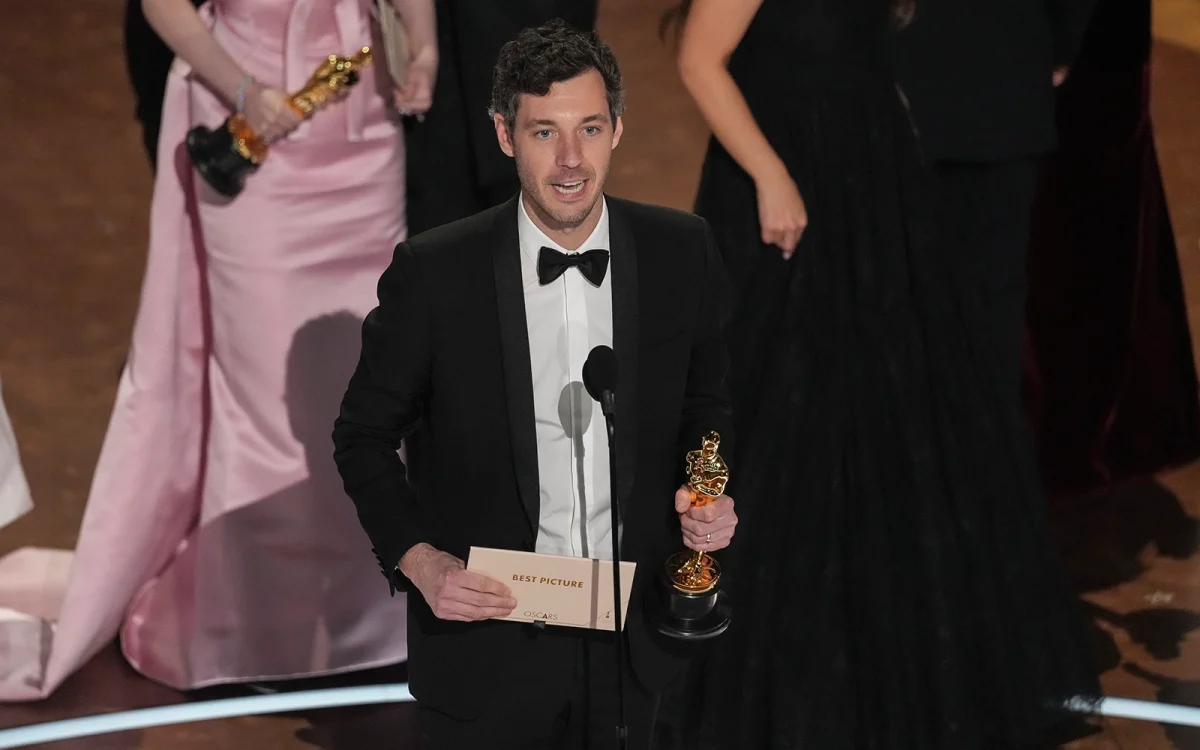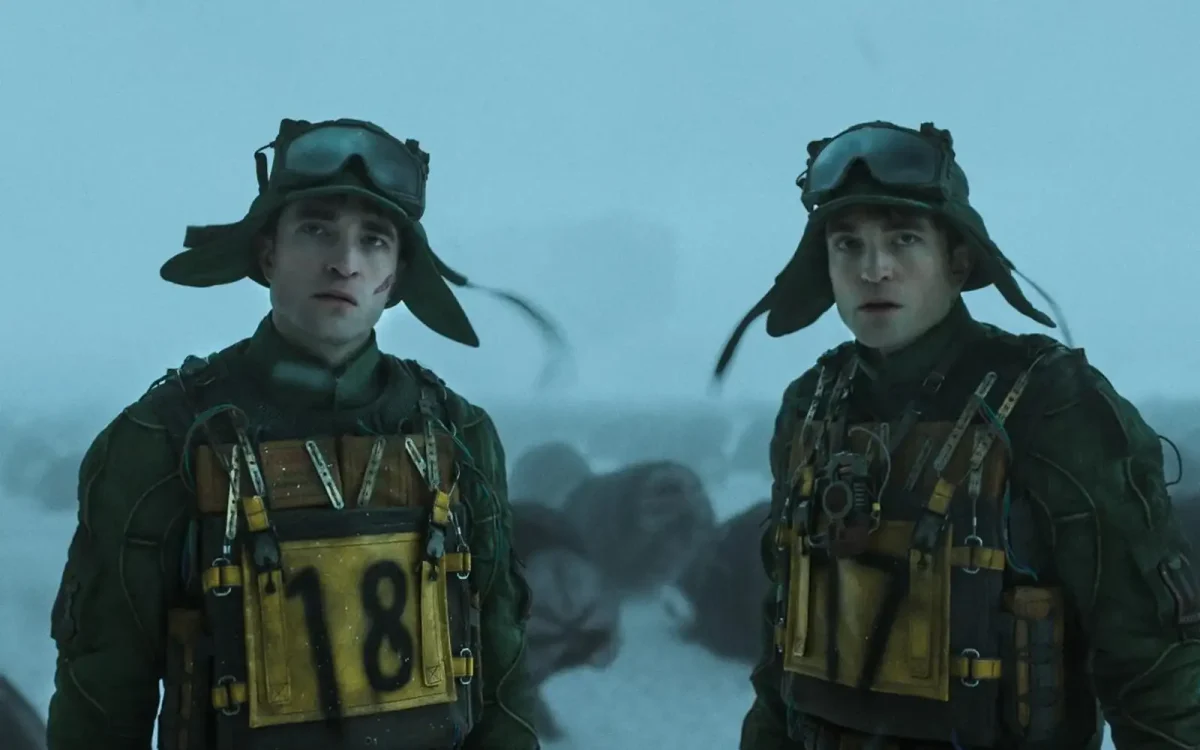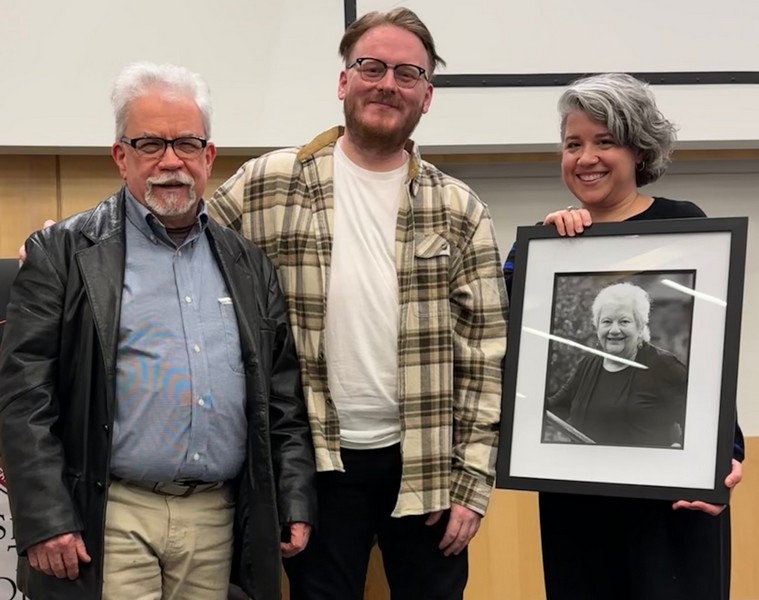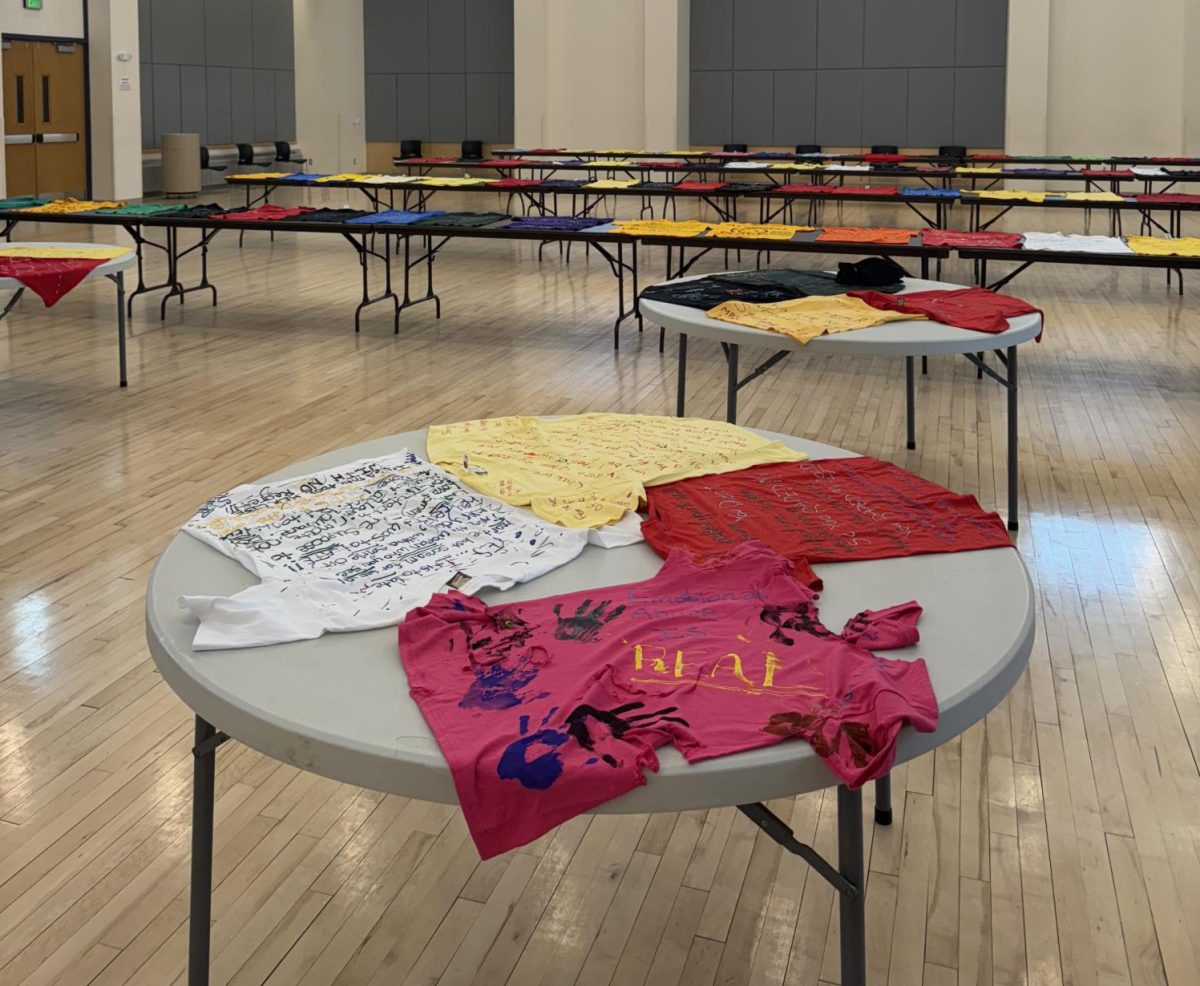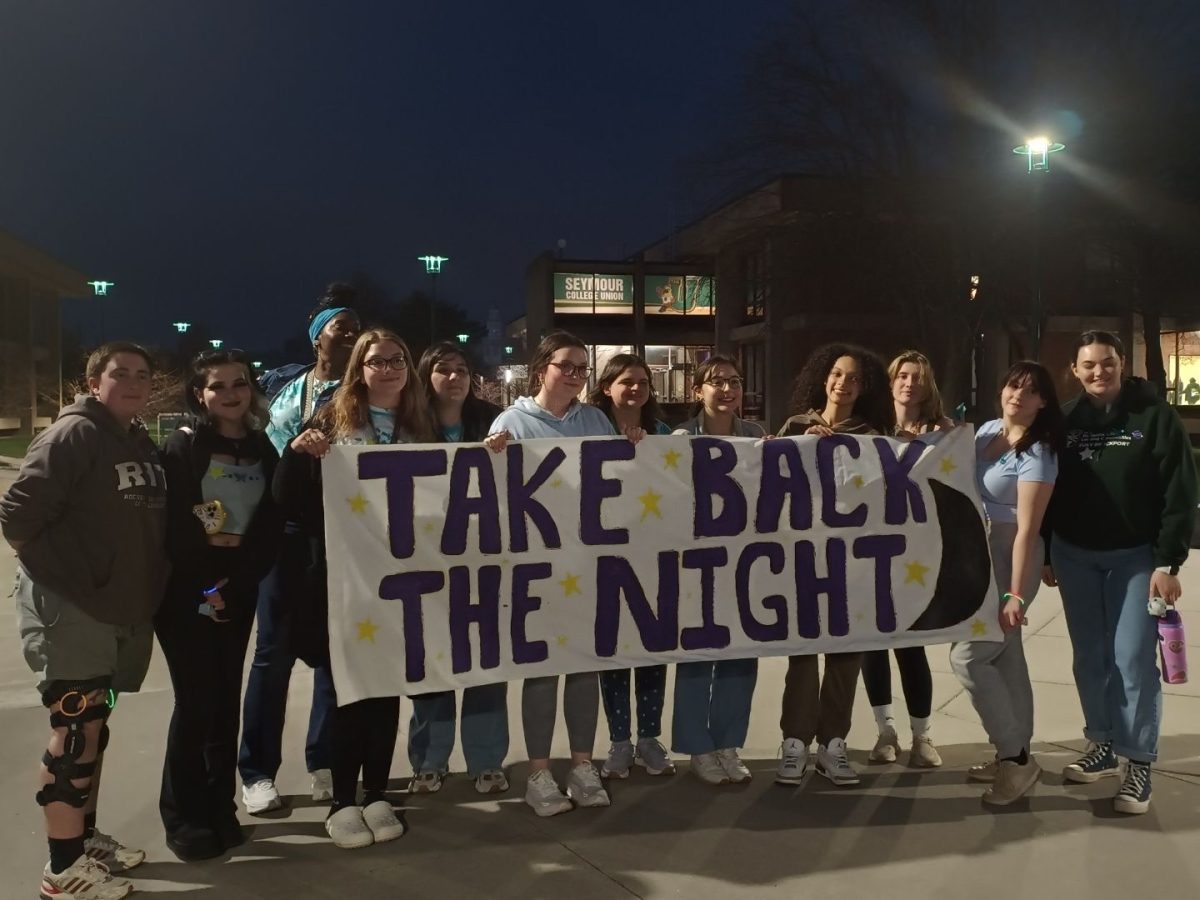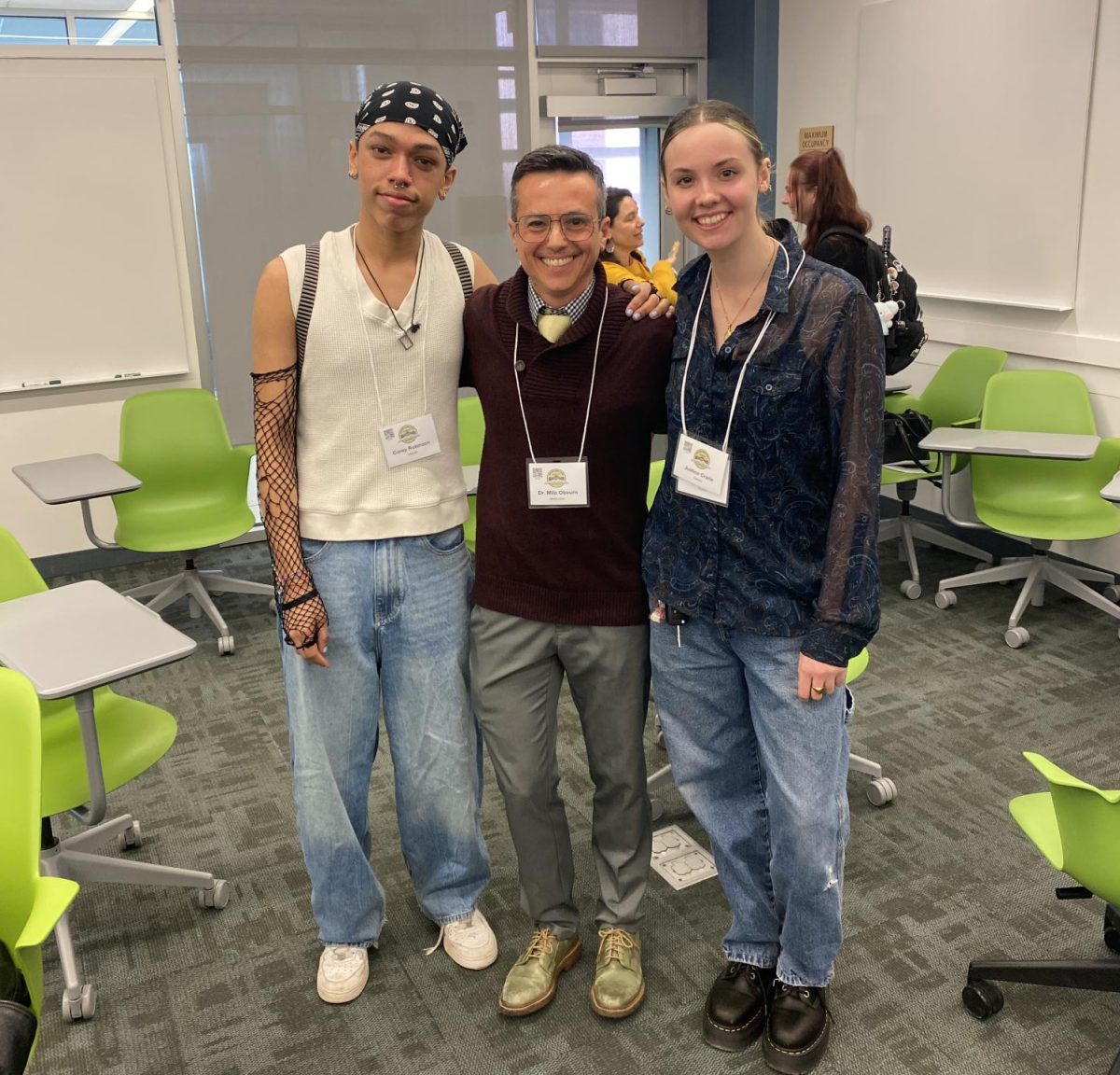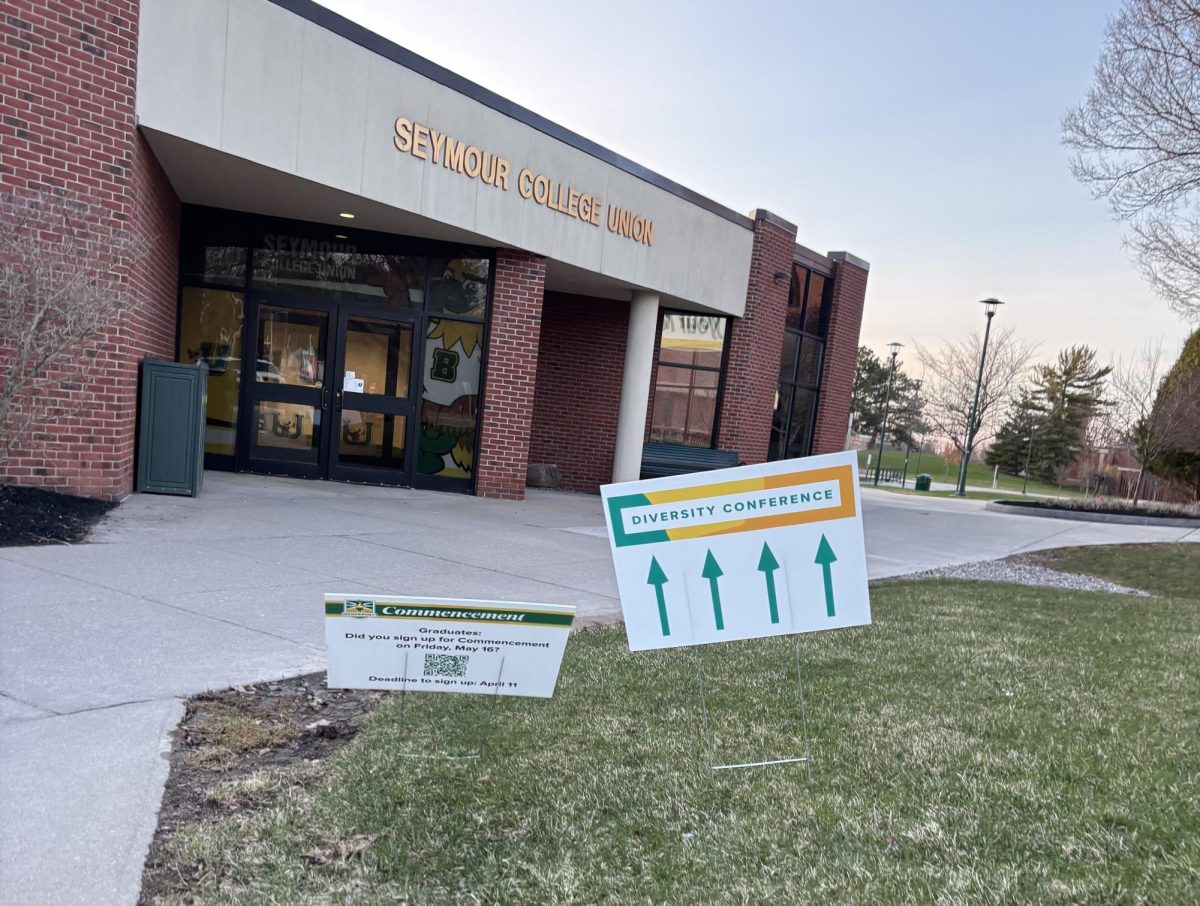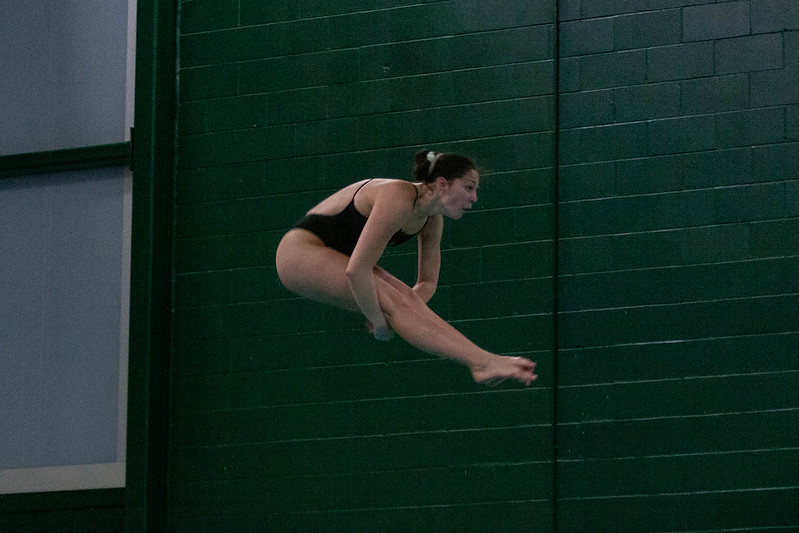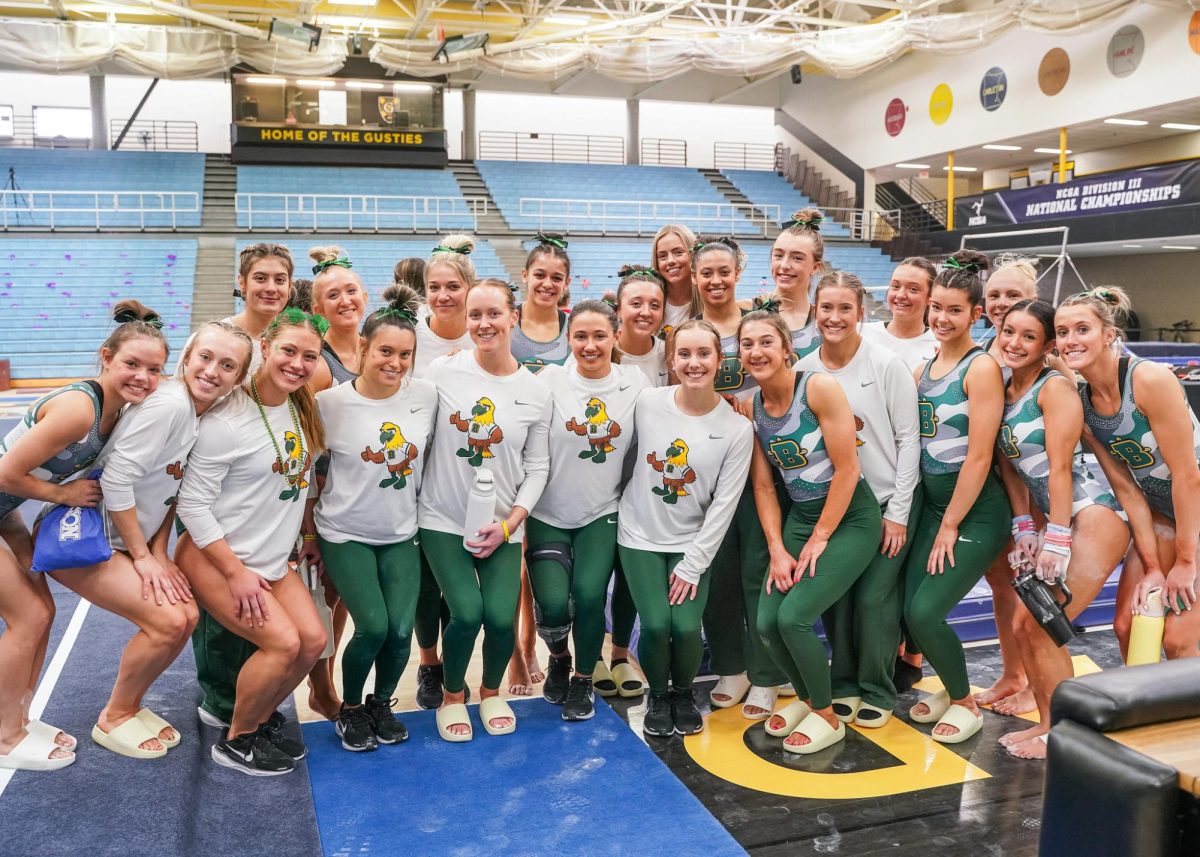By Sarah Killip | Editor-in-Chief
Wrapping up her second year as a Golden Eagle, diver Kyra Russ’ list of accomplishments falls anything but short. Russ climbed out of the pool at the end of her 2022- 2023 season with two school records, a new pool record for Brockport’s James B. Natatorium, two second place finishes at SUNYACS and an 11th-place finish and a 13th-place finish in the 1-meter and the 3-meter boards respectively at NCAA Regionals.
Russ was a gymnast her entire life, but an MCL tear and two knee surgeries unfortunately brought that career to a close. After a lot of convincing from family and friends, she decided to try diving her sophomore year of high school. Russ earned a spot on the varsity team.
“I had never set foot on a diving board before that day and have fallen in love with the sport ever since,” Russ said. “My high school diving coach, Christine Long, believed in me from the moment I stepped foot on the pool deck. I remember one of the first weeks of diving she pointed at the record board and told me she saw a future with my name up there. Two months later, we had a meet, and she walked in and told me that ‘today was the day,’ and it was.”
Russ gained a sense of spatial awareness required to flip and land correctly at a young age, but diving requires a lot of patience and is significantly different than gym- nastics in that regard. Even today she still struggles with that facet.
“In some aspects, diving did come naturally to me, but that does not mean I did not struggle,” Russ said. “You have to learn to take your time and use the board to your advantage. You have to treat the harder skills the same way as you do your easy dives. I will not say that diving as a whole has gotten easier for me, but certain skills have. I struggled learning how to twist when I started diving, but now they’re my favorite category, and I don’t even need to think about them when diving.”
When learning new dives, Russ divides the process into segments—working on the lead-in and the out phases separately. Russ also likes to walk through her dives on land. This gives her the chance to break down the motions in the dive and allows her to pinpoint mistakes she’s making. Diving coach Scott Horsington explains that after time is spent working on lead-ups and preps to correct any issues with take-off or dive flight, he uses calls to signal to the divers.
“When a diver is learning a new dive, they are moving into territory they aren’t familiar with—this could mean doing more somersaults, more twists or a blind entry,” Horsington said. “When the time comes to do the dive, the coach is there to give a verbal cue to the diver to indicate when they need to kick out and move into their entry position (usually it’s just a quick shout—’hup!’). It takes some of the cognitive load off the diver so that they can focus on replicating the take-off and initial stages of flight rather than worrying about when to finish the dive. Over time, as a diver has more experience with a new dive, calls are used to reinforce timing until they are consistent enough to complete the dive safely on their own.”
Along with callouts, Russ relies on feeling.
“I have very long hair and I have it in a braid when I dive, so sometimes the feeling of where my hair is in the air is when I know I need to come out of the dive. Some- times, when I cut a decent portion of my hair off, my diving will be out of sorts since I do rely on where my hair is in a dive,” Russ said.
Like many teams, the atmosphere for the swimmers and divers is family oriented. It’s positive, encouraging and every athlete is there for one another. Russ relies on Horsington tremendously. He’s been a rock for her since she started diving for the Green and Gold.
“Coach Scott is one of the most encouraging coaches I have ever had,” Russ said. “He does not pressure us to try any new dives, but he will let us know that we havethe ability to do the new dive. He has helped me alter my thinking process to know that sometimes your 75% on some days is your 100% on the others, but it doesn’t matter because you are still trying your hardest. It is a hard concept to understand when you are a perfectionist, but it has helped me during my hard times.”
Horsington is a public-school teacher by trade, so he approaches coaching as an educator. He recognizes the importance of focusing on the whole athlete—noticing their unique strengths and needs and building from that foundation.
“The most important skill to master is the ability to see how a ‘bad’ practice is still valuable, informative and necessary in the overall arc of a season (and over the course of an athlete’s career),” Horsington said. “In practice, that can be as simple as highlighting what went well on a dive that may have been less than ideal, or more involved, like taking the time to stop what we’re doing and talk it out. At the end of the day, my hope is for any Brockport diver to look back at their time on the team and recall it fondly, and more for the experiences they had with their teammates, rather than as a sum of wins, losses or missed opportunities. Using a meet as a one-time metric for someone’s worth does a lot more harm than good and doesn’t help build the mental toughness needed to perform under pressure.”
Every sport has a mind game, but the mental head space needed for diving needs to be clear and focused in order to perfect proper technique.
“It can hurt a lot if you hit the water wrong, especially
if you are on the 3-meter board; there have been times when I have not gotten my hands above my head for a dive and have walked out of practice with black eyes,” Russ said. “If you are not in the right head space, there is a high chance that you may mess up the dive. Even excitement changes my dives—my heart starts beating and I start to rush. I normally try to calm myself down during meets or during a new dive by taking big breaths or by dancing to music. There have been many times that I have been caught dancing on the sidelines trying to calm myself down.”
Russ still has two years as a Golden Eagle to break records and dance on the sidelines, and she is looking forward to every moment of it. Horsington is excited for her future in the program and explains how her dedication and positivity have benefited the team, as well as guided her personal success.
“Kyra is one of the hardest-working divers I’ve had the pleasure to coach,” Horsington said. “She’s the first one in and the last one out, she uses her time wisely and she takes the time to really consider what will best serve her when the pressure is on. Her desire to succeed is matched by her willingness to do what is difficult and necessary to make it happen, and I’m so thankful for the chance to work with her.”
The Golden Eagles swim and dive teams kick off their next season in the fall of 2023.

